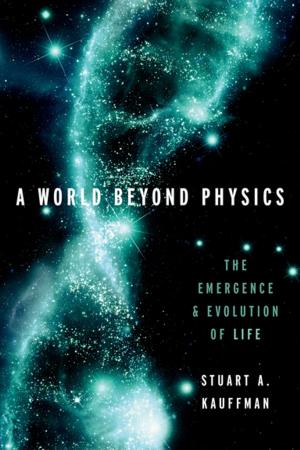Genesis of the Cosmos
The Ancient Science of Continuous Creation
Nonfiction, Science & Nature, Science, Physics, Astronomy, Astrophysics & Space Science, General Physics| Author: | Paul A. LaViolette, Ph.D. | ISBN: | 9781591438397 |
| Publisher: | Inner Traditions/Bear & Company | Publication: | April 15, 2004 |
| Imprint: | Bear & Company | Language: | English |
| Author: | Paul A. LaViolette, Ph.D. |
| ISBN: | 9781591438397 |
| Publisher: | Inner Traditions/Bear & Company |
| Publication: | April 15, 2004 |
| Imprint: | Bear & Company |
| Language: | English |
Provides compelling evidence that creation myths from the dawn of civilization correspond to cutting edge astronomical discoveries
• Exposes the contradictions in current cosmological theory and offers a scientific basis for the ancient myths and esoteric lore that encode a theory of continuous creation
• By the scientist who was the first to disprove the Big Bang theory on the basis of observational data
Recent developments in theoretical physics, including systems theory and chaos theory, are challenging long-held mechanistic views of the universe. Many thinkers have speculated that the remnants of an ancient science survive today in mythology and esoteric lore, but until now the scientific basis for this belief has remained cloaked in mystery. Paul LaViolette reveals the remarkable parallels between the cutting edge of scientific thought and creation myths from the dawn of civilization. With a scientific sophistication rare among mythologists, LaViolette deciphers the forgotten cosmology of ancient lore in a groundbreaking scientific tour de force. In direct, nontechnical language, he shows how these myths encode a theory of cosmology in which matter is continually growing from seeds of order that emerge spontaneously from the surrounding subquantum chaos.
Exposing the contradictions that bedevil the big bang theory, LaViolette offers both the specialist and the general reader a controversial and highly stimulating critique of prevailing misconceptions about the seldom-questioned superiority of modern science over ancient cosmology. By restoring and reanimating this ancient scientific worldview, Genesis of the Cosmos leads us beyond the restrictive metaphors of modern science and into a new science for the 21st century.
Provides compelling evidence that creation myths from the dawn of civilization correspond to cutting edge astronomical discoveries
• Exposes the contradictions in current cosmological theory and offers a scientific basis for the ancient myths and esoteric lore that encode a theory of continuous creation
• By the scientist who was the first to disprove the Big Bang theory on the basis of observational data
Recent developments in theoretical physics, including systems theory and chaos theory, are challenging long-held mechanistic views of the universe. Many thinkers have speculated that the remnants of an ancient science survive today in mythology and esoteric lore, but until now the scientific basis for this belief has remained cloaked in mystery. Paul LaViolette reveals the remarkable parallels between the cutting edge of scientific thought and creation myths from the dawn of civilization. With a scientific sophistication rare among mythologists, LaViolette deciphers the forgotten cosmology of ancient lore in a groundbreaking scientific tour de force. In direct, nontechnical language, he shows how these myths encode a theory of cosmology in which matter is continually growing from seeds of order that emerge spontaneously from the surrounding subquantum chaos.
Exposing the contradictions that bedevil the big bang theory, LaViolette offers both the specialist and the general reader a controversial and highly stimulating critique of prevailing misconceptions about the seldom-questioned superiority of modern science over ancient cosmology. By restoring and reanimating this ancient scientific worldview, Genesis of the Cosmos leads us beyond the restrictive metaphors of modern science and into a new science for the 21st century.















